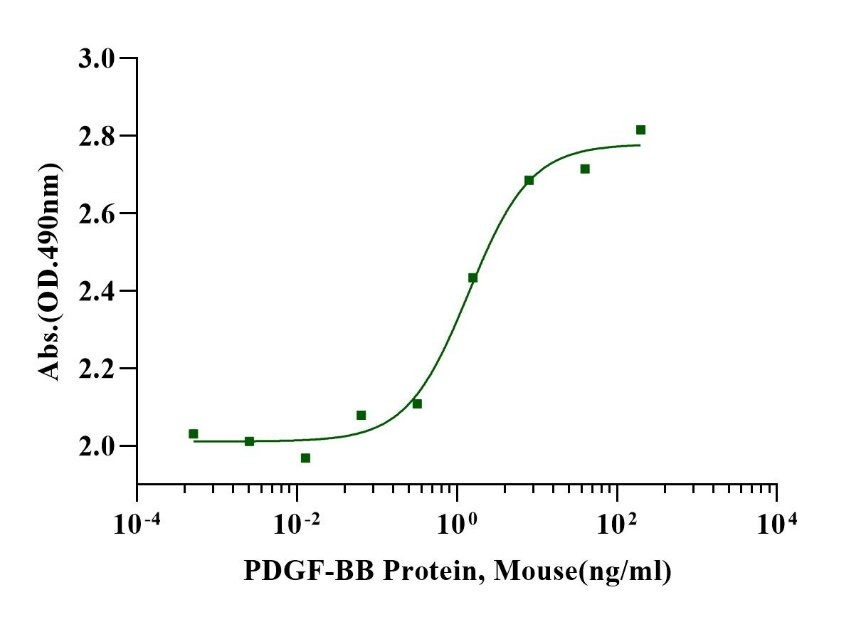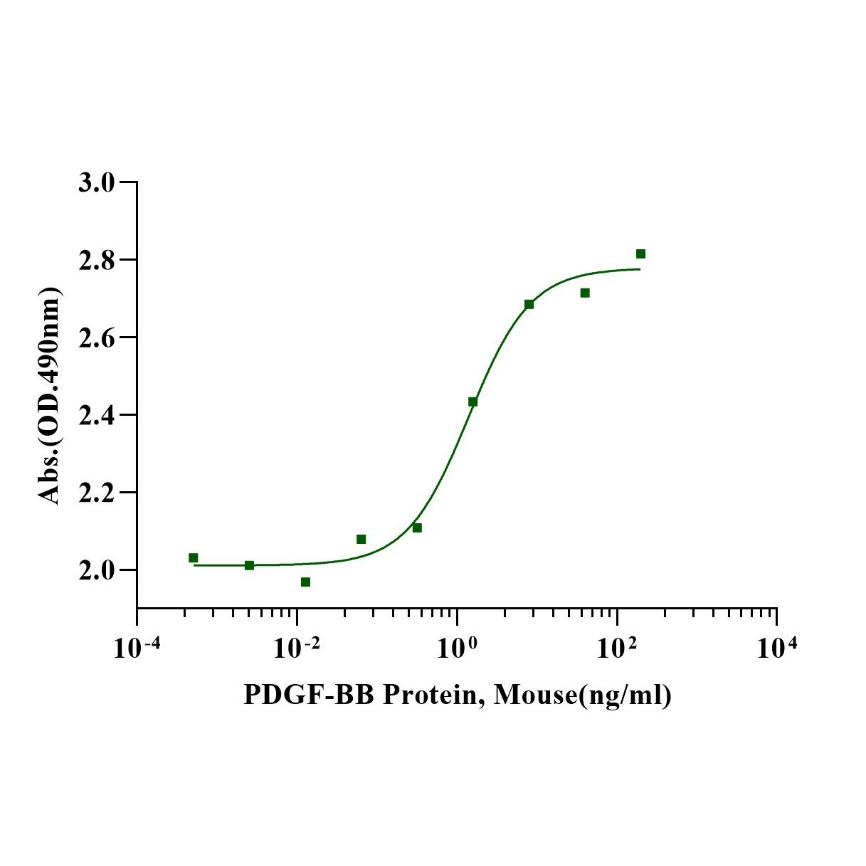Measured in a cell proliferation assay using Balb/c 3T3 mouse fibroblast cells. The EC50 for this effect is less than 2ng/ml.
Product Details
Product Details
Product Specification
| Species | Mouse |
| Synonyms | Platelet-derived growth factor subunit B; PDGF subunit B; PDGF-2; Platelet-derived growth factor B chain; Platelet-derived growth factor beta polypeptide; Proto-oncogene c-Sis; |
| Accession | P31240 |
| Amino Acid Sequence | Ser82-Thr190 |
| Expression System | Yeast |
| Molecular Weight | 15-17 kDa (Reducing) |
| Purity | >95% by SDS-PAGE. |
| Endotoxin | <0.1EU/μg |
| Conjugation | Unconjugated |
| Tag | No Tag |
| Physical Appearance | Lyophilized Powder |
| Storage Buffer | 4mM HAc |
| Reconstitution | Reconstitute at 0.1-1 mg/ml according to the size in ultrapure water after rapid centrifugation. |
| Stability & Storage |
· 12 months from date of receipt, lyophilized powder stored at -20 to -80℃. · 3 months, -20 to -80℃ under sterile conditions after reconstitution. · 1 week, 2 to 8℃ under sterile conditions after reconstitution. · Please avoid repeated freeze-thaw cycles. |
| Reference | Cell Commun Signal. 2013 Dec 20:11:97. |
Background
Platelet-derived growth factor BB (PDGF-BB) is a member of the PDGF family of growth factors that play a crucial role in cell proliferation, migration, and angiogenesis. PDGF-BB is a homodimeric protein that is released by platelets, macrophages, and endothelial cells in response to tissue injury or inflammation. It acts by binding to its receptors, PDGFR-α and PDGFR-β, leading to the activation of downstream signaling pathways involved in cell growth and tissue repair. PDGF-BB is involved in various physiological processes, such as wound healing, tissue regeneration, and vascular development, as well as in pathological conditions, including fibrosis, atherosclerosis, and cancer.
Picture
Picture
Bioactivity

SDS-PAGE
2μg (R: reducing condition, N: non-reducing condition).


